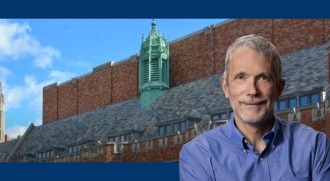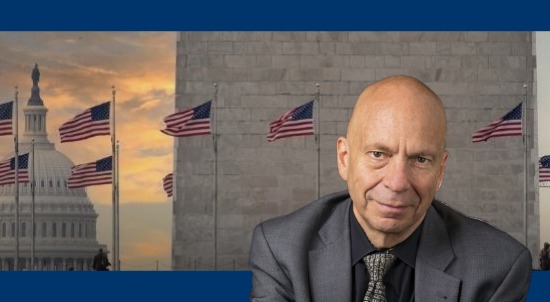
Environmental Politics and Law
Published: Spring 2010
Description
Can law change human behavior to be less environmentally damaging? Law will be examined through case histories, including the environmental effects of national security, pesticides, air pollution, consumer products, plastics, parks and protected area management, land use, urban growth and sprawl, public/private transit, drinking water standards, food safety, and hazardous site restoration. In each case, we will review the structure of the law and evaluate its strengths and weaknesses.
Course Takeaways
- Law will be examined through case histories including: environmental effects of national security, pesticides, air pollution, consumer products, plastics, parks and protected area management, land use, urban growth and sprawl, public/private transit
Meet the Instructors
 Professor Wargo’s research explores threats to human health posed by environmental hazards, including exposures to pesticides, vehicle emissions, toxins in foods, plastics, flame-retardants, metals, and chemicals released outdoors and indoors. Current research examines environmental and health challenges associated with the global food system. He authored Green Intelligence winning the Independent Publishers Gold Medal in Environment, Ecology and Nature; Scientific American Favorite Science Book of 2010; and the Connecticut Book Award for Non-Fiction. Our Children’s Toxic Legacy, published by Yale Press won the American Publishers’ Association Prize as the best Book in Political Science. He has testified before U.S. Senate and House Committees recommending legal strategies to protect children from environmental hazards, and has been an advisor to the Senate Committee on Health, the Vice President’s office, several EPA administrators, and the Secretary of Agriculture. He has been a member of EPA’s Scientific Advisory Panel/Board on Pesticides, U.S. Centers for Disease Control and Prevention’s scientific panels, advisor to the U.N.’s World Health Organization, and Food and Agriculture Organization on malaria control, food safety, and pesticide control standards. His analyses were the basis of two National Academy of Sciences Press books on chemical hazards in food. His course, Environmental Politics and Law and its 24 lecturers are freely accessible in video and translated into 50 languages on the website Open Yale. He chairs the Yale College Environmental Studies Major, and has chaired Yale College’s Curriculum Committee. He received his PhD from Yale. He helped guide faculty searches and curriculum development at Yale-NUS College in Singapore.
Professor Wargo’s research explores threats to human health posed by environmental hazards, including exposures to pesticides, vehicle emissions, toxins in foods, plastics, flame-retardants, metals, and chemicals released outdoors and indoors. Current research examines environmental and health challenges associated with the global food system. He authored Green Intelligence winning the Independent Publishers Gold Medal in Environment, Ecology and Nature; Scientific American Favorite Science Book of 2010; and the Connecticut Book Award for Non-Fiction. Our Children’s Toxic Legacy, published by Yale Press won the American Publishers’ Association Prize as the best Book in Political Science. He has testified before U.S. Senate and House Committees recommending legal strategies to protect children from environmental hazards, and has been an advisor to the Senate Committee on Health, the Vice President’s office, several EPA administrators, and the Secretary of Agriculture. He has been a member of EPA’s Scientific Advisory Panel/Board on Pesticides, U.S. Centers for Disease Control and Prevention’s scientific panels, advisor to the U.N.’s World Health Organization, and Food and Agriculture Organization on malaria control, food safety, and pesticide control standards. His analyses were the basis of two National Academy of Sciences Press books on chemical hazards in food. His course, Environmental Politics and Law and its 24 lecturers are freely accessible in video and translated into 50 languages on the website Open Yale. He chairs the Yale College Environmental Studies Major, and has chaired Yale College’s Curriculum Committee. He received his PhD from Yale. He helped guide faculty searches and curriculum development at Yale-NUS College in Singapore.



